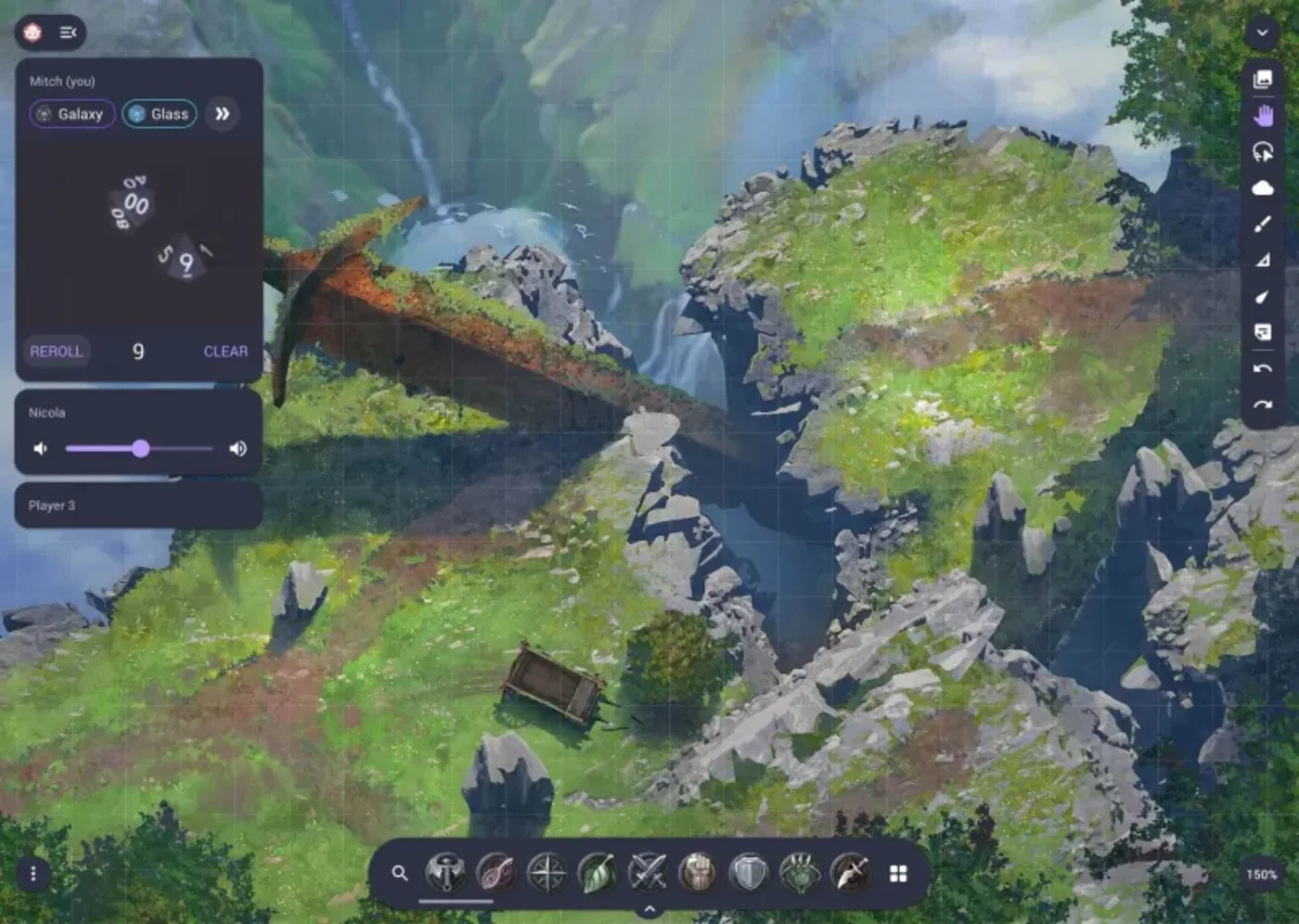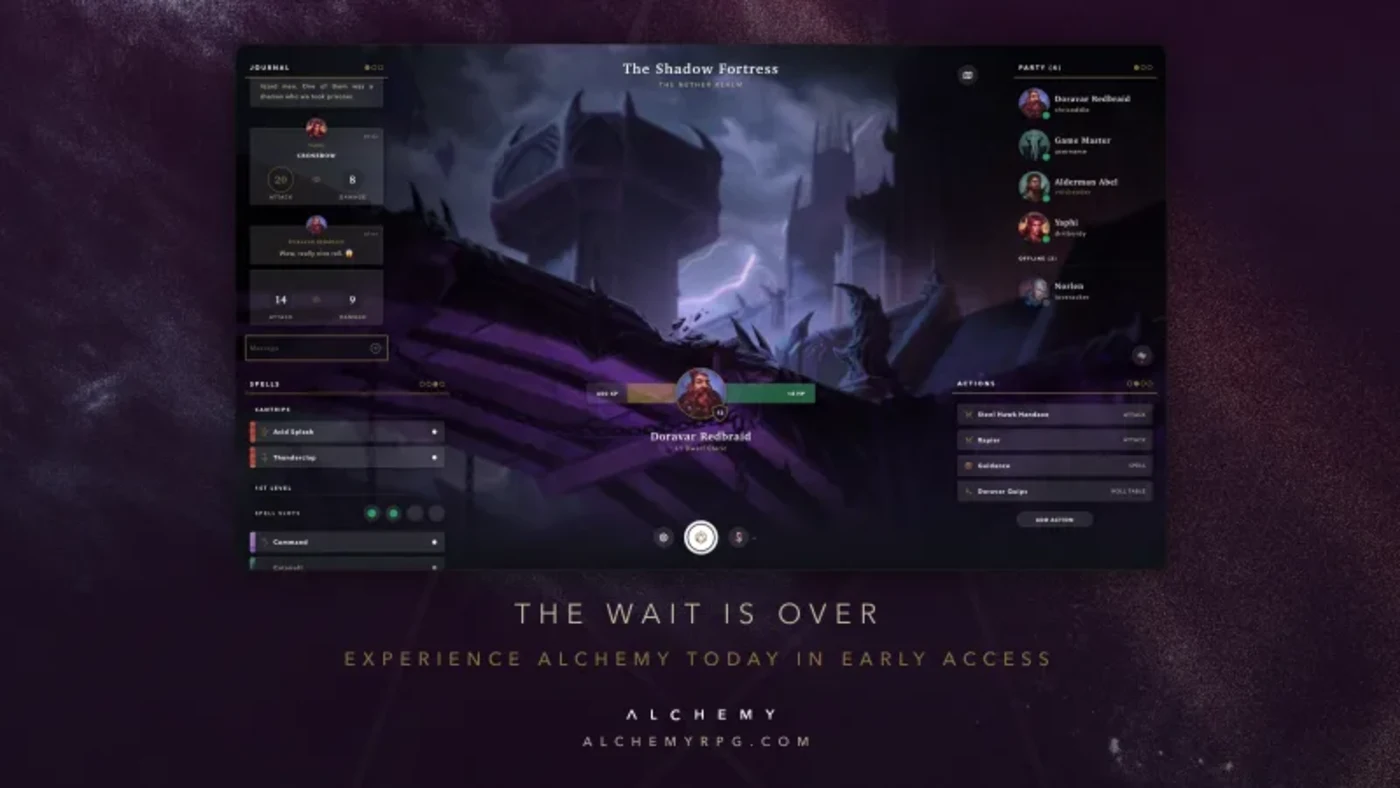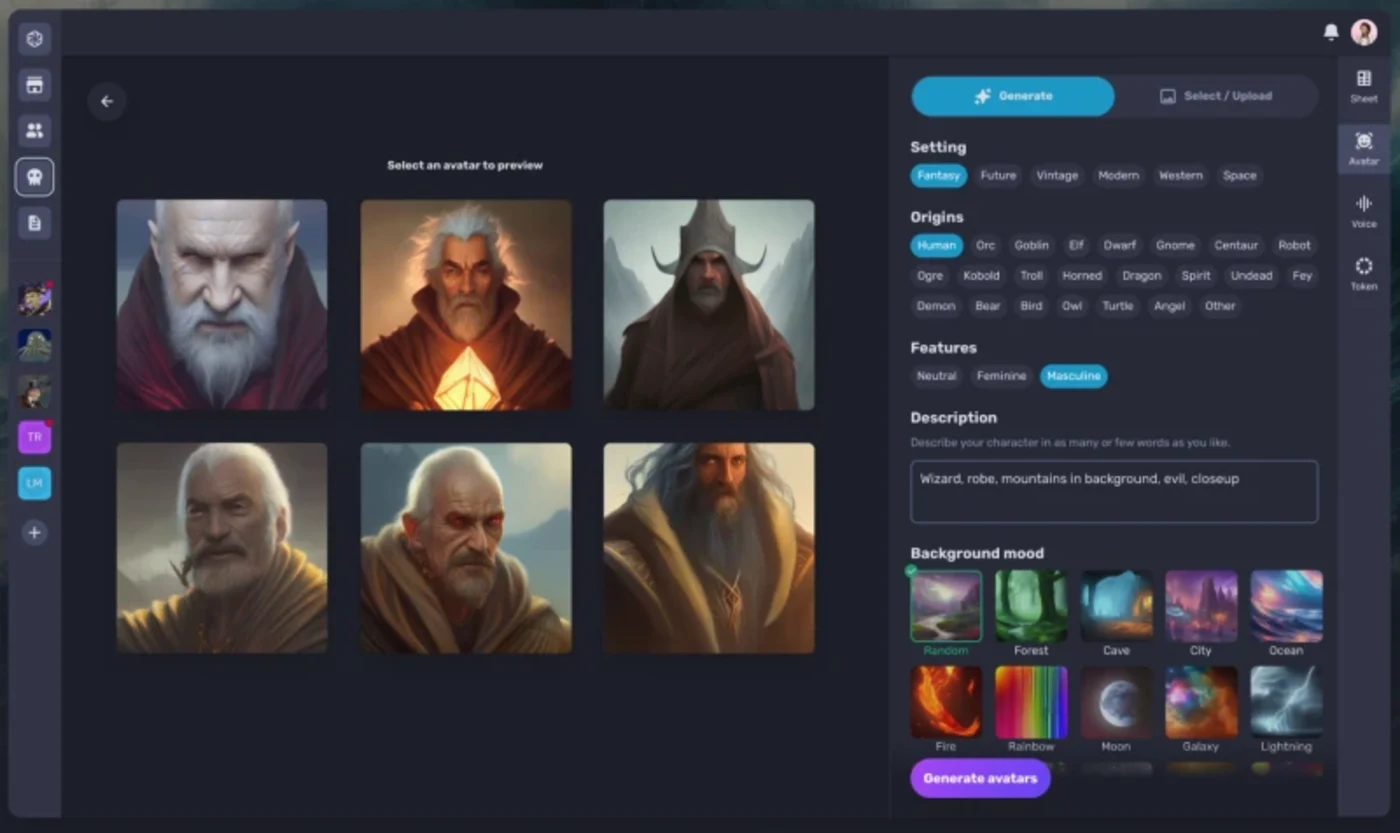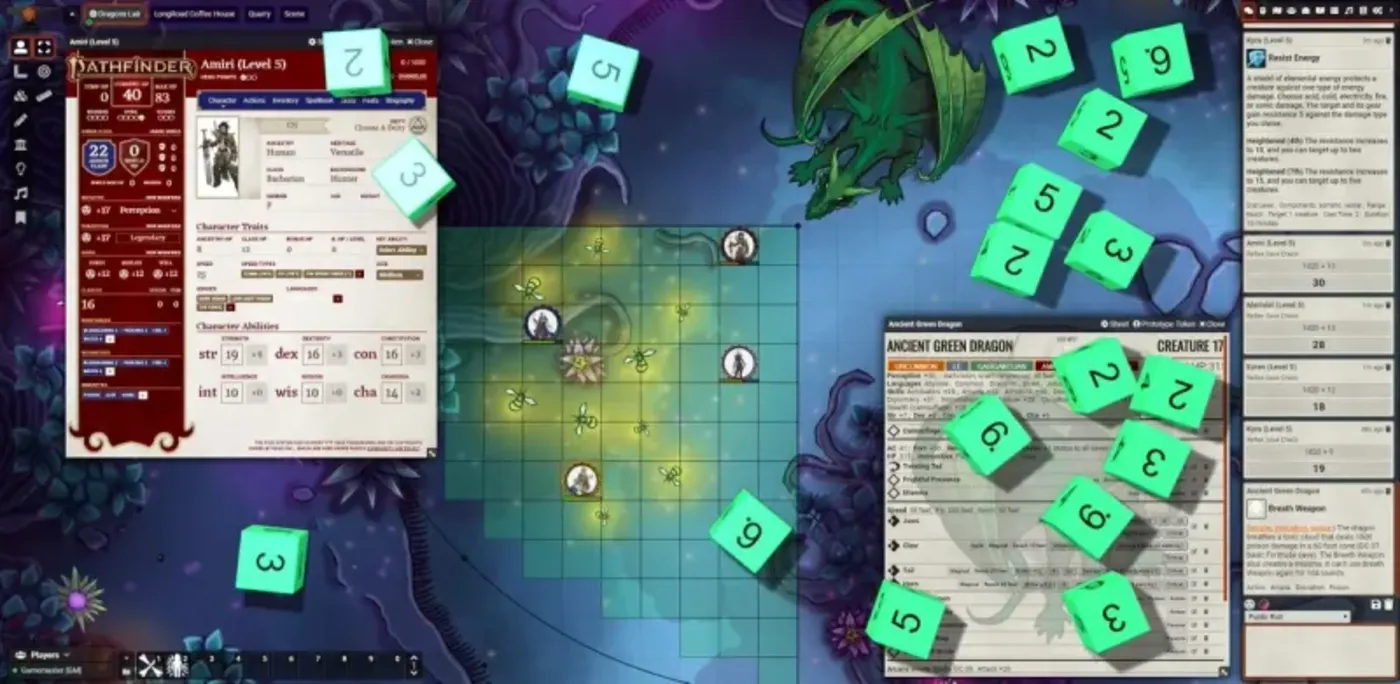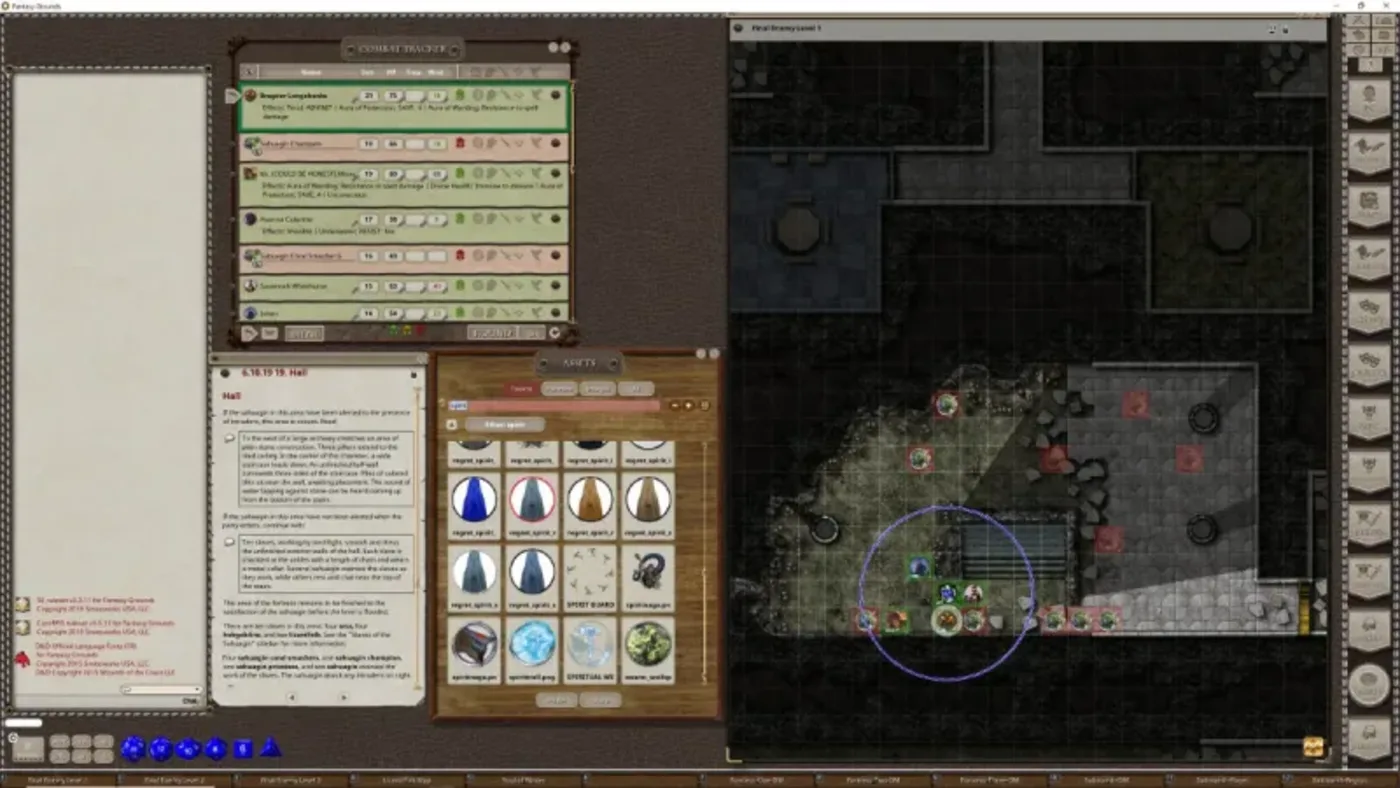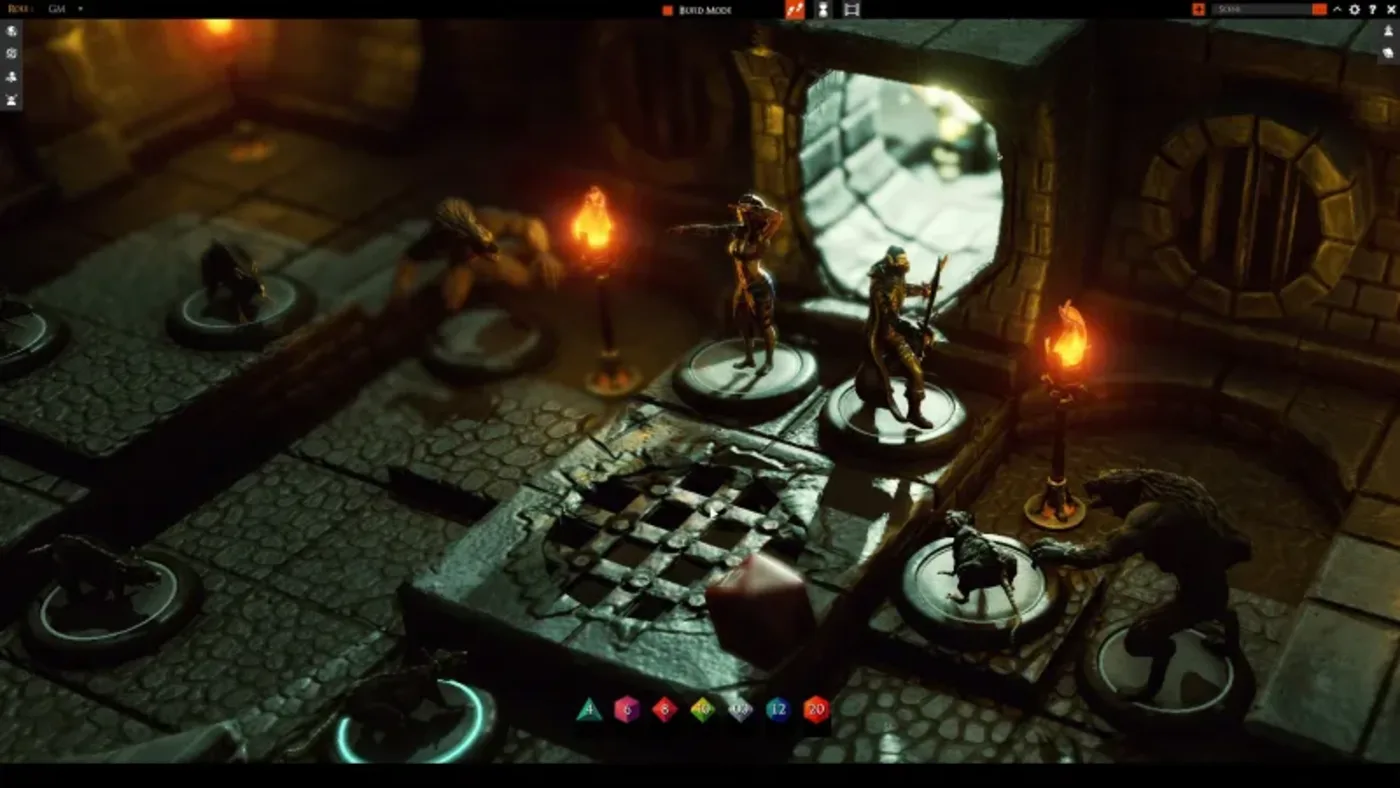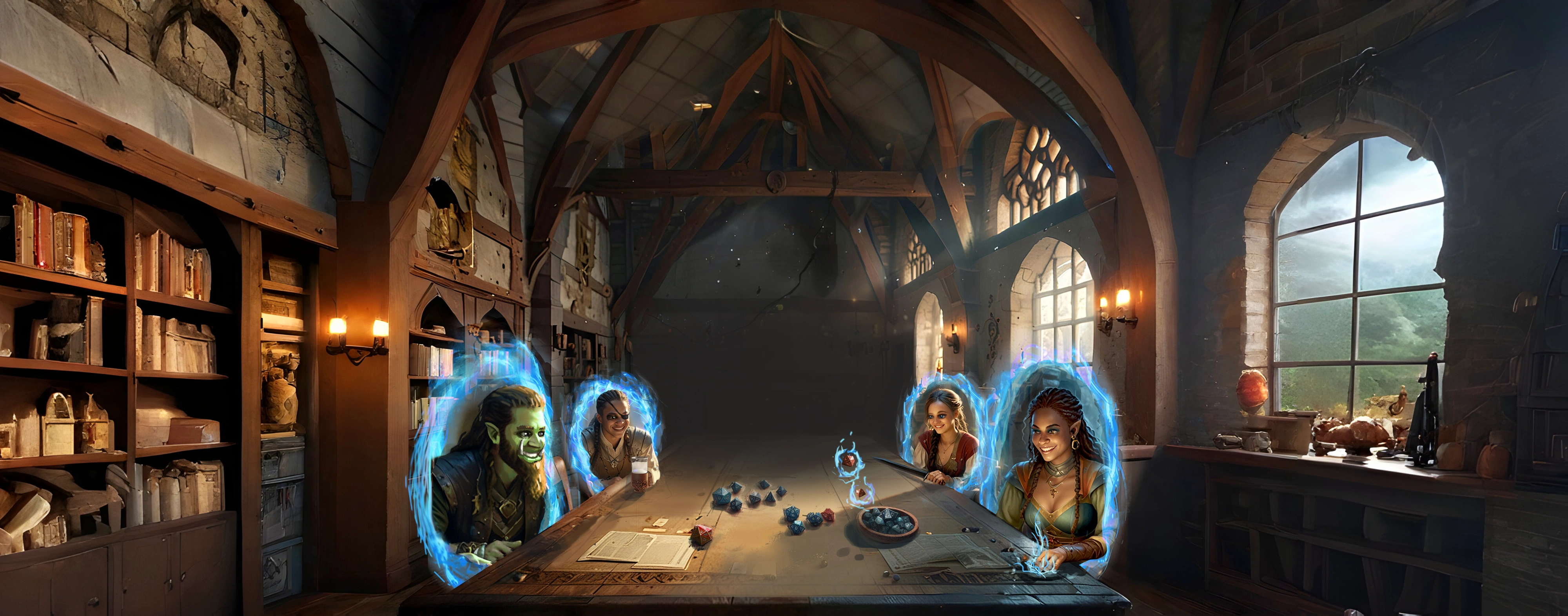
8 of the best virtual tabletop software in 2024 for playing RPGs online
Tabletop roleplaying games (TTRPGs) have been around for decades, and with advances in technology, virtual tabletops and online tools to play TTRPGs have become increasingly popular.
With so many platforms to choose from, it can be tough to know where to start. In this article, we’ll be showcasing the top software for playing tabletop roleplaying games like Daggerheart online in 2024, focusing on key factors like ease of use, roleplaying features, and social interaction.
Next-gen VTTs focused on simplicity and roleplaying
In the world of virtual tabletop (VTT) tools, there’s been a clear trend toward simplicity, enhanced user experience, and deeper roleplaying immersion. This is likely due in part to the growing popularity of TTRPG streamers and podcasts like Critical Role and Dimension 20.
However, some users criticize the more complex table-focused VTTs as an awkward blend of in-person roleplaying and video game-like experiences akin to Elden Ring, Final Fantasy 16, or Diablo 4.
Players who are truly invested in the roleplaying aspect of TTRPGs are seeking platforms that elevate the social experience rather than just simulating a physical table. The latest VTT tools reflect this, emphasizing intuitive design, seamless communication, and features that enhance collaborative storytelling.
1. SendingStone
SendingStone is a video chat platform with a built-in virtual tabletop, designed to put communication first. It offers a simple and immersive alternative to more complex VTT platforms like Roll20. SendingStone combines all the tools you need for online tabletop gaming into a single, browser-based app that’s optimized for small screens, such as mobile phones.
Its features include reliable voice and video chat with AR face filters, screen sharing, and customizable player portraits with name tags. The 3D dice roller offers quick formulas for convenience, and users can chat, attach files, send private messages, and join games with just a URL—no login required.
To further enhance immersion, SendingStone includes animated backdrops and synchronized YouTube audio. The real-time multiplayer tabletop allows for live interaction using cursors, tokens, drawing tools, images, videos, notes, rulers, fog of war, initiative tracking, and more. You can also upload PDFs or character sheet images, link dice rolls to text elements, and grant your party access to handouts, spells, and more. For streamers, SendingStone offers audience mode and built-in streaming to Twitch and YouTube with the “Go Live” button.
SendingStone is free with limited GM video. Instead of a subscription, the platform offers a pay-per-session model to upgrade your room for an ad-free experience with unlimited player video.
2. Owlbear Rodeo
Owlbear Rodeo has quickly gained popularity among TTRPG fans. This free, easy-to-use platform comes with a variety of features that make it ideal for beginners. One of its standout features is that it saves content directly in your browser, which can be a huge time-saver when preparing for games. It also offers a large collection of pre-made tokens.
Simplicity is a core focus of Owlbear Rodeo, making it an excellent choice for players new to virtual tabletops. Owlbear Rodeo has a strong community of users, ranging from those who use it for in-person gaming to online players who combine it with video chat software. If your group doesn’t mind using multiple apps, Owlbear Rodeo paired with Discord and Kenku.fm for audio sharing makes for a free and robust online TTRPG setup.
3. Alchemy RPG
Alchemy RPG, an immersive virtual tabletop for TTRPGs, has been making waves on Kickstarter. Version one of Alchemy introduces licensed support for 12 different game systems, content modules from 50 publishers, and Alchemy Enhanced, which offers a thematic interface with motion graphics, original music, and environmental sounds. The Kickstarter campaign also offers beautifully designed card decks in themes like Fantasy, Futures, Modern, and Dystopia. Alchemy’s customizable UI, music integration, and ambient sound features let you set the perfect tone for your game. The platform also includes integrated voice chat to enhance in-character roleplaying.
4. QuestPortal
QuestPortal is a virtual tabletop created by gamers, for gamers. It stands out for its user-friendly interface and smooth user experience, making it a highly immersive tool for TTRPG adventures. One of QuestPortal’s unique features is its eldritch AI assistant, Elder, which is designed to deliver rules and lore from Chaosium’s Call of Cthulhu. QuestPortal is currently in Early Access and available for free.
The traditional powerhouses of tactical virtual tabletops
For years, traditional virtual tabletops have dominated the scene, offering complex automation tools, vast content libraries, and detailed tactical gameplay. While these platforms offer unparalleled depth, there’s growing concern that they can feel more like a second-rate video game than a true TTRPG experience. However, for players seeking rich customization and extensive features, these options remain powerful choices.
1. Roll20
Roll20, launched in 2012, remains the most widely used virtual tabletop on the market. Although it’s not the easiest platform to navigate, Roll20 has been investing in redesigning its interface. Known for its extensive tools and automation features, Roll20 is ideal for experienced players willing to invest time and money in building content. Roll20 offers built-in character sheets, a vast library of maps and tokens, and supports video and voice chat (though many users opt to use Discord for communication).
2. Foundry Virtual Tabletop
Foundry Virtual Tabletop has quickly won over the TTRPG community with its open-source, highly customizable platform. Users have the ability to self-host and configure their games to their liking. Foundry is known for its vibrant ecosystem of plugins and modules, which offer countless ways to enhance gameplay, from 3D maps to built-in video and audio chat. The tradeoff is a steeper learning curve, but for players looking for ultimate flexibility, Foundry is a top choice.
3. Fantasy Grounds Unity
Fantasy Grounds Unity is a feature-rich virtual tabletop built with the Unity engine, offering a powerful desktop solution for both in-person and remote TTRPG sessions. With official licenses for D&D 5th edition, Pathfinder, and more, Fantasy Grounds Unity offers a comprehensive toolset for creating and managing campaigns.
4. Talespire
Talespire brings your campaigns to life with stunning 3D visuals and intricate maps. This virtual tabletop focuses heavily on map creation and exploration, allowing players to build immersive environments. While the user interface can be challenging at times, Talespire’s engaging visuals and community-driven approach make it a worthwhile option for players who prioritize aesthetics.
Conclusion
Choosing the right virtual tabletop software can make a big difference in your experience playing tabletop roleplaying games. Each of the virtual tabletop software on this list has its own unique features and strengths. Roll20 and the old guard of feature-rich tabletop-focused experiences are a great choice for players who are okay with complexity and want a large community, ample features, and a video-game like experience.
Those who believe that the heart and soul of tabletop roleplaying games (TTRPGs) is not the TT part, but the RP part, might want to look elsewhere. The new breed of simple immersive tools like SendingStone are great choices for players who want an easy-to-use platform with an emphasis on ambiance and roleplaying.
Share this article
Want more content?
Subscribe to get notified of new articles, upcoming adventures, new features, and more
Adventure awaits, your friends are remote, and teleportation isn’t canon in this world. Playing online is the only option.
What do you do?
hello@sendingstone.com
Privacy • Terms • Blog • Compendium • Name Generators • Beyond20 • PLAN Gaming • Pathfinder • Daggerheart • Cosmere RPG • Powered by the Apocalypse • Dungeons & Dragons • Credits
© 2026 Artificer, LLC

